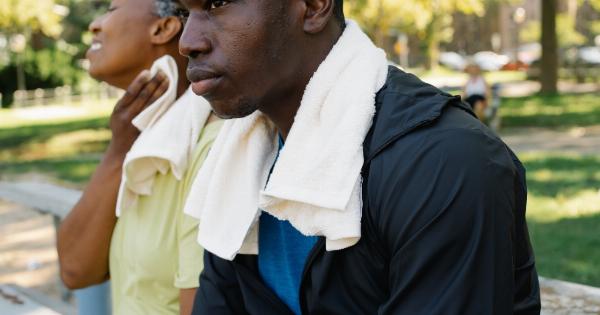Gulfal odor, also known as body odor, is a common condition that affects many individuals worldwide. It can be embarrassing and distressing, leading to social discomfort and reduced self-confidence.
Understanding the causes, symptoms, and treatment options can help individuals suffering from gulfal odor effectively manage and overcome this condition.
What Causes Gulfal Odor?
Gulfal odor is primarily caused by the interaction between sweat and bacteria present on the skin. There are two types of sweat glands in our bodies, eccrine and apocrine glands.
Eccrine glands are responsible for regulating body temperature and producing sweat that is generally odorless. On the other hand, apocrine glands, found mostly in the armpits and genital area, produce a thicker sweat that is rich in proteins and lipids. When this sweat comes into contact with bacteria on the skin’s surface, it produces an unpleasant odor.
Common Symptoms of Gulfal Odor
The main symptom of gulfal odor is the presence of an unpleasant and persistent odor, especially in the armpits, feet, and groin area.
The intensity of the odor may vary, depending on factors such as hygiene habits, clothing choices, and individual body chemistry. Other common symptoms may include:.
- Excessive sweating
- Sticky or clammy skin
- Discoloration of clothing
- Skin irritation or infections
Treatment Options for Gulfal Odor
Fortunately, there are various treatment options available to help manage and reduce gulfal odor. Here are some effective ways to treat and prevent this condition:.
Practicing Good Hygiene
Maintaining proper hygiene is crucial in managing gulfal odor. Take regular showers to cleanse your body thoroughly, paying special attention to areas prone to sweating, such as the armpits and groin area.
Use antibacterial soaps or body washes that can help eliminate odor-causing bacteria. After showering, make sure to dry your skin completely before getting dressed, as bacteria thrive in damp environments.
Using Antiperspirants or Deodorants
Antiperspirants or deodorants can be effective in controlling gulfal odor. Antiperspirants work by reducing sweat production, whereas deodorants help mask or neutralize the odor.
Look for antiperspirants or deodorants that contain ingredients like aluminum chloride or zinc ricinoleate, as they are known for their odor-neutralizing properties.
Choosing Breathable Fabrics
The choice of clothing can greatly impact gulfal odor. Opt for breathable fabrics, such as cotton or linen, as they allow air to circulate and help prevent excessive sweating.
Avoid wearing tight-fitting clothes, as they can trap sweat and bacteria, exacerbating the odor. Additionally, consider wearing moisture-wicking socks and shoes made of breathable materials to combat foot odor.
Managing Stress and Anxiety
Stress and anxiety can contribute to the production of sweat and worsen gulfal odor.
Finding healthy ways to manage stress, such as practicing relaxation techniques or engaging in physical exercise, can help minimize sweat production and reduce body odor.
Medical Treatments
If gulfal odor persists despite self-care measures, it is recommended to consult a healthcare professional. They may prescribe medical treatments such as:.
- Prescription-strength antiperspirants
- Botox injections to temporarily block sweat glands
- Antibiotics to combat bacteria on the skin
- Surgical procedures to remove sweat glands
Medical treatments should be pursued under the guidance and supervision of a qualified healthcare provider.
Prevention Tips for Gulfal Odor
Prevention is key to managing gulfal odor and minimizing its impact on your daily life. Follow these prevention tips:.
- Shower daily and wash thoroughly, paying attention to areas prone to sweating.
- Use antibacterial soaps or body washes to eliminate odor-causing bacteria.
- Dry your skin completely after showering to prevent bacteria growth.
- Apply antiperspirants or deodorants daily to control sweat and odor.
- Select breathable fabrics, especially for clothing worn close to your skin.
- Maintain a healthy weight, as excess weight can contribute to increased sweating.
- Reduce stress and anxiety through relaxation techniques or exercise.
- Avoid spicy foods, which can potentially increase body odor.
- Regularly change and wash your clothes, especially undergarments and socks.
- Consider using odor-reducing products, such as odor-neutralizing sprays or powders.
Seeking Professional Help
If gulfal odor persists despite adopting preventive measures and home remedies, it is crucial to seek professional help.
A healthcare professional or dermatologist can assess your condition, provide a proper diagnosis, and recommend appropriate treatment options to manage and alleviate gulfal odor.
Remember, gulfal odor is a common condition that can be effectively managed with the right approach.
By implementing good hygiene practices, using odor-reducing products, and seeking professional guidance when needed, individuals can regain their confidence and enjoy improved quality of life.






























